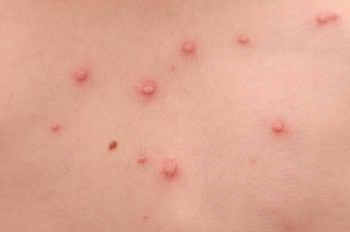Learn about the causes of Shingles & find a practitioner in Auckland, Hamilton, Bay of Plenty, Wellington, Christchurch, Dunedin to help you overcome Shingles within New Zealand.
Shingles is a contagious rash on the skin caused by the same virus that causes chickenpox. The virus remains dormant in the body after a bout of chickenpox but is suppressed by the immune system. Shingles is most common in people over the age of 50 when the virus can be reactivated by fatigue, emotional stress or more serious causes such as cancer. Symptoms of shingles include painful and sensitive skin followed by a rash and small blisters.

Shingles is caused by the herpes varicella-zoster virus which infects a
nerve and the surrounding skin. The virus is the same as the chickenpox
virus which many people get during childhood.
Once chickenpox
has gone, the virus remains in the nervous system without any problems
as the immune system prevents it from reappearing. However, if the
immune system becomes weak then the virus can be reactivated resulting
in shingles.
Symptoms of shingles usually begin with a tingling sensation in any
part of the body although the chest and abdomen are most commonly
affected. Shingles can also affect the nerves in the face and eyes.
Following
the tingling, a constant burning sensation is experienced ranging from
mild to severe. The area affected can become tender and the pain can
become sharp and stabbing.
Two to three days after the pain
starts, a rash will develop on one side of the body around the area of
skin related to the affected nerve. The rash appears first as blotchy
and red and then develops into blisters similar to chickenpox. The
blisters become yellow and dry after appearing and eventually form into
scabs which may leave some scarring.
Other symptoms common to shingles include:
You should visit your GP in the first instance as they will diagnose
shingles by your symptoms and the appearance of a rash. If you are at
risk of developing complications you may be referred to a specialist.
If your eye is affected then an Ophthalmologist will help to ensure that vision is not permanently damaged.
People
with a weakened immune system such as those with HIV or AIDS or
receiving chemotherapy will be referred to a specialist so the
condition can be monitored.
Featured Product(s):
|
Product Information |
Product Website
|
|
Herp-Eze |
 HealthyOnline
|
*Source: GoToSee.co.uk
Recent Shingles Questions